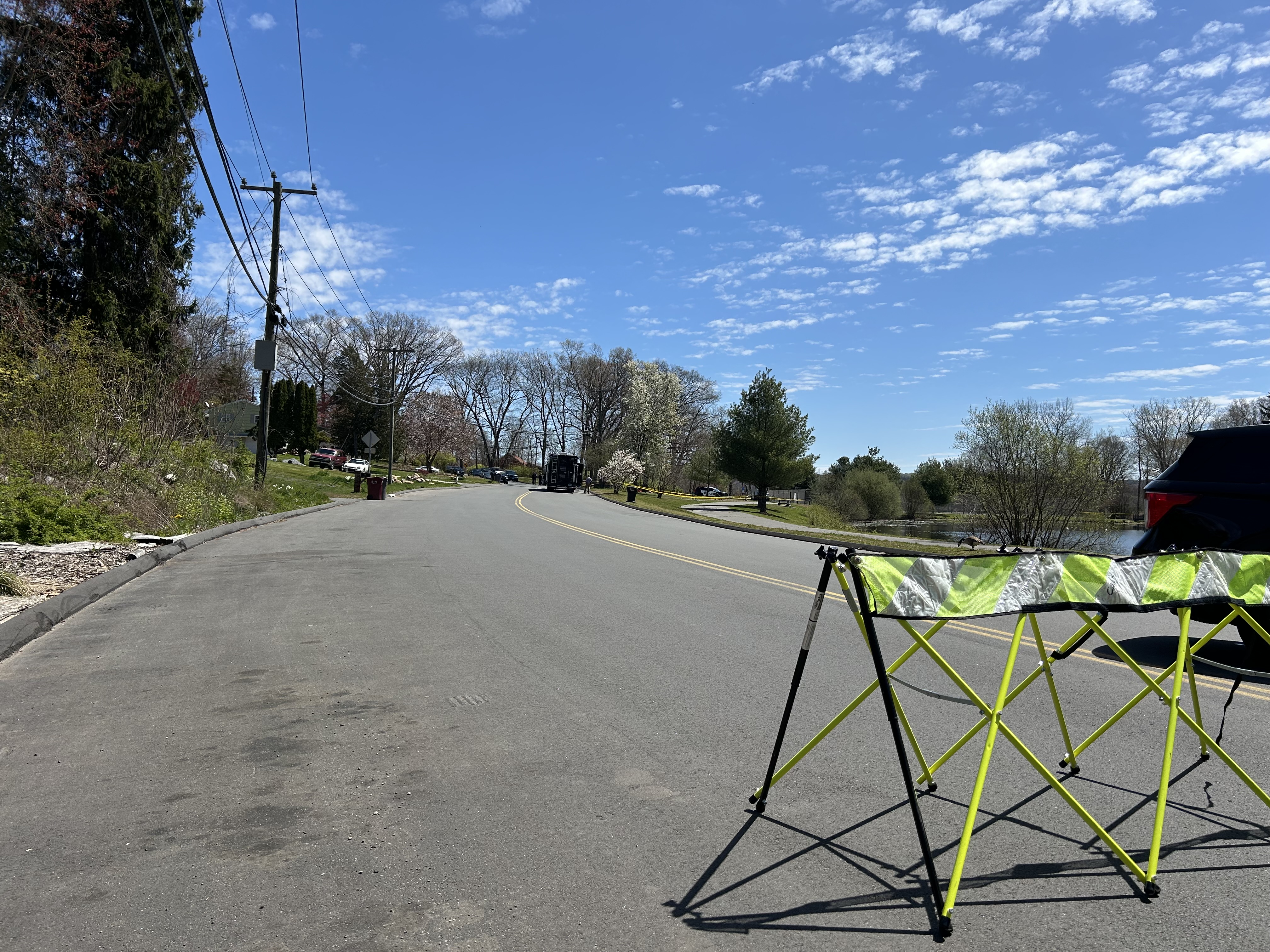Happy memories are what Milford Fire Lieutenant Jason Dombrowski finds comfort in these days. Photographs show the story of his life with his late wife Jessica: the couple beaming on their wedding day, holding their newborn babies in the hospital, and celebrating the holidays as a young, growing family.
But during this busy and deadly flu season, the constant screeching of the ambulance whizzing by Milford Fire headquarters is a painful reminder of how Jessica died.
“I’ve helped probably thousands of patients. And the one patient that I was truly supposed to help, even though I did everything that could have been done, I wasn’t able to,” Jason said, visibly emotional. Eight years after his wife’s death, it’s still difficult for him to talk about.
Jessica Dombrowski was 39 years old and in good health when she contracted the H1N1 strain of the flu in February 2010.
“When she got sick we figured hey, just let it run its course. She’ll be fine,” said Jason, an 18-year veteran of the fire service and a paramedic for 20 years.
But after a trip to her primary care doctor and a course of Tamiflu, she wasn’t getting better. So they went to the emergency room, where Jason insisted on a chest X-ray. It turned up clear.
“They said OK, it might get a little bit worse before it gets better,” he recalled. “And it did get worse. It got significantly worse.”
After being released from the ER, they headed home for the night. Unbeknownst to the Dombrowskis, Jessica was quietly developing a flu complication called ARDS, or Acute Respiratory Distress Syndrome. Less than 18 hours later, after a 911 call and another trip to the ER, she passed away.
“It happened so quick,” Jason said, remembering that difficult morning. “She was alert, she was talking to me, kids were all around her, stuff like that … but when we got to the ER, people who are in the field know, when I saw the crash cart next to her, I was like, what in the world is going on?”
The unimaginable grief that followed was compounded by the pain of wondering if a flu shot would have made a difference.
“She was supposed to get the flu shot in December and we missed the appointment,” Jason explained. “You got two young kids, things come up. ‘I’ll get it tomorrow, I’ll get it next week’… and it bothers me. Maybe the flu shot would have lessened the symptoms. Maybe if we got to the hospital quicker.”
Those are questions Jason will never have the answers to. Now he wants to warn others to take the growing flu epidemic seriously.
This week at Milford Hospital, Emergency Room Director Dr. Richard Greiner said about 20 percent of incoming patients are testing positive for flu.
“It’s mostly this H3N2 strain,” Greiner said, “and that certain variant is really good at mutating so it’s hard to vaccinate completely against. It happens to mutate very frequently, and so because of that it’s harder for our immune systems to handle it, and that’s why it’s so widespread.”
Greiner said despite mixed reports about the efficacy of this year’s vaccine, it remains the best defense against the flu.
“Even if it’s only like 10 to 30 percent effective this year which it might be, still, if you get vaccinated you’re going to be helping all the people you come in contact with,” said Greiner. “You won’t be spreading it to them, and you’ll get a milder case yourself.”
From the time you receive the flu vaccine it takes about two weeks to develop the antibodies to fight the flu, so Greiner said the sooner you get it the better to stay protected for the rest of this flu season – a season which the CDC and Connecticut Department of Public Health say has yet to peak.
According to the DPH, flu activity in Connecticut remains high and widespread with an increasing number of patients presenting with flu symptoms, as well as increasing numbers of flu-associated hospitalizations and deaths. Statewide emergency department visits attributed to the flu have increased to 14.2 percent, which is the highest weekly level observed in Connecticut since the 2009 H1N1 pandemic.
A total of 1,360 patients have been hospitalized in the state with confirmed cases of flu between Aug. 27, 2017 and Feb. 3, 2018. Sixty-three deaths have been attributed to the flu (50 associated with flu A, 13 with flu B) in Connecticut so far this season. Of these deaths, 52 were among patients over the age of 65, six were 50 to 64 years of age, three were 25 to 49 years of age, one was between 19 and 24 years of age, and one was between 5 and 17 years of age. A total of 3,895 influenza positive laboratory tests have been reported so far this season.
With the news of each new flu death, and with each alarm ringing for a respiratory distress call, Jason Dombrowski is reminded of his own loss. It’s why he’s chosen to finally tell his painful story in hopes of preventing another family’s heartbreak.
“Why don’t you reconsider maybe getting the flu shot?” he asks. “If you think that just because you’re healthy and you haven’t had the flu shot ever, that it’s not going to affect you, you’re wrong. Healthy people can and do get it, and they can die from it.”
Several flu vaccine clinics are scheduled across the state. To find one near you, click here.



